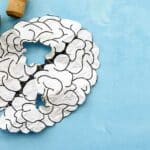- Signs Of Psychosis
- Alcoholism & Psychiatric Disorders
- Dangers Of Psychosis
- Treatment For Alcohol-Related Psychosis
Alcohol-related psychosis, also known as alcohol hallucinosis, can occur with chronic alcoholism, alcohol withdrawal, and acute intoxication. This form of psychosis can also be found in those suffering from alcohol use disorder.
Likely occurring after periods of heavy alcohol consumption or heavy drinking, alcohol-related psychosis takes place when alcohol intoxication leads someone to experience psychotic signs and symptoms.
Signs Of Alcohol-Related Psychosis
According to the Diagnostic and Statistical Manual of Mental Disorders, (DSM-5), a person diagnosed with an alcohol-related psychotic disorder may experience significant hallucinations.
In fact, some of the signs of alcohol-related psychosis include:
- mood disturbances
- delusions
- altered mental status
- cognitive impairment
- family history of alcohol abuse
Psychotic Episodes
Symptoms of psychosis include paranoia, anxiety, and fear. Those suffering from a psychotic episode brought on by alcohol may pose a risk to themselves and others nearby.
Psychotic symptoms can include:
- tremors
- confusion
- auditory hallucinations
- high blood pressure
- visual hallucinations
- depression
Due to intense hallucinations that one may experience, there is an increased risk of accidents like:
- falls
- drownings
- motor vehicle crashes
- homicide
- suicide
Alcoholism & Psychiatric Disorders
The National Institute on Alcohol Abuse and Alcoholism states that there are a variety of psychiatric disorders which are commonly associated with alcoholism.
In fact, alcohol-induced psychosis is difficult to diagnose because the symptoms are similar to schizophrenia, a mental health disorder.
Monitoring someone’s mental health is extremely important during psychosis or if you suspect someone is struggling with alcoholism or mental illness. Psychosis can be seen in those suffering from bipolar disorder, major depressive disorder, and other mood disorders.
Dual Diagnosis
Those who struggle with both alcoholism and mental illness may develop a co-occurring disorder or dual diagnosis. Not only will treatment need to address your addiction to alcohol, you will likely need substantial mental health resources as well.
Mental health disorders, in combination with substance abuse, can lead to a dual diagnosis. If this is the case, a dual diagnosis treatment plan may prove to be beneficial in addressing your mental health and substance use concerns.
Dangers Of Alcohol-Induced Psychosis
There are many dangers of alcohol-induced psychosis, some of which can be life-threatening. Those who partake in excessive alcohol use may develop alcohol poisoning in addition to psychosis and other mental health effects.
Wernicke-Korsakoff Syndrome (WKS)
Wernicke-Korsakoff Syndrome (WKS) takes place when a person develops a vitamin B1 thiamine deficiency. This deficiency can be caused by a weakened immune system brought on by drinking alcohol.
The acute version of WKS is Wernicke Encephalopathy (WE), which may be life-threatening. It can correlate with severe health problems. The deficiency of vitamin B1 can lead to brain damage.
Delirium Tremens (DTs)
Those struggling with alcohol withdrawal may experience dangerous withdrawal symptoms. A severe type of withdrawal includes delirium tremens (DTs). DTs are considered a medical emergency.
A person suffering from DTs may experience severe hallucinations and even high blood pressure due to the affects on your cardiovascular system. Those with DTs can develop a stroke, heart attack, or other cardiovascular event.
Treatment Options For Alcohol-Related Psychosis
Addiction treatment for alcohol-related psychosis is an important step to help you or a loved one. Talk with your healthcare provider to determine your treatment options.
Antipsychotics
To assist in treatment with those struggling with alcohol-induced psychosis, doctors may use sedatives to help calm down patients during a psychotic episode. Benzodiazepines can be used during this phase of treatment as well as to help with withdrawal symptoms.
Detox
At a treatment center, you can undergo a detox program. This will help rid your body of harmful chemicals and toxins brought on by alcohol and drug abuse. You may be monitored during this process depending on the severity of your disorder.
Alcohol Addiction Treatment Program
If you or a loved one live with a substance use disorder or have a history of alcohol abuse, it’s time for you to find treatment. Consider the treatment options provided by Northeast Addictions Treatment Center:
- outpatient treatment programs
- behavioral health therapy
- dual-diagnosis treatment
- aftercare addiction services
- group therapy
For more information on our treatment services, please contact us today.
Sources
- Alcohol Research — Alcohol Use Disorder and Schizophrenia or Schizoaffective Disorder
- BMC Research Notes — Cognitive Changes in Alcohol-Induced Psychotic Disorder
- Industrial Psychiatry Journal — Alcoholic Hallucinosis
- National Institute on Alcohol Abuse and Alcoholism — Alcoholism and Psychiatric Disorders
- National Library of Medicine: StatPearls — Alcohol-Related Psychosis
Written by
Northeast Addition Editorial Team
©2024 Northeast Addition Center | All Rights Reserved
This page does not provide medical advice.



